You follow the recipe that everyone else says makes a moist cake and yours turns out dry. Why is that and what can you do to prevent it?
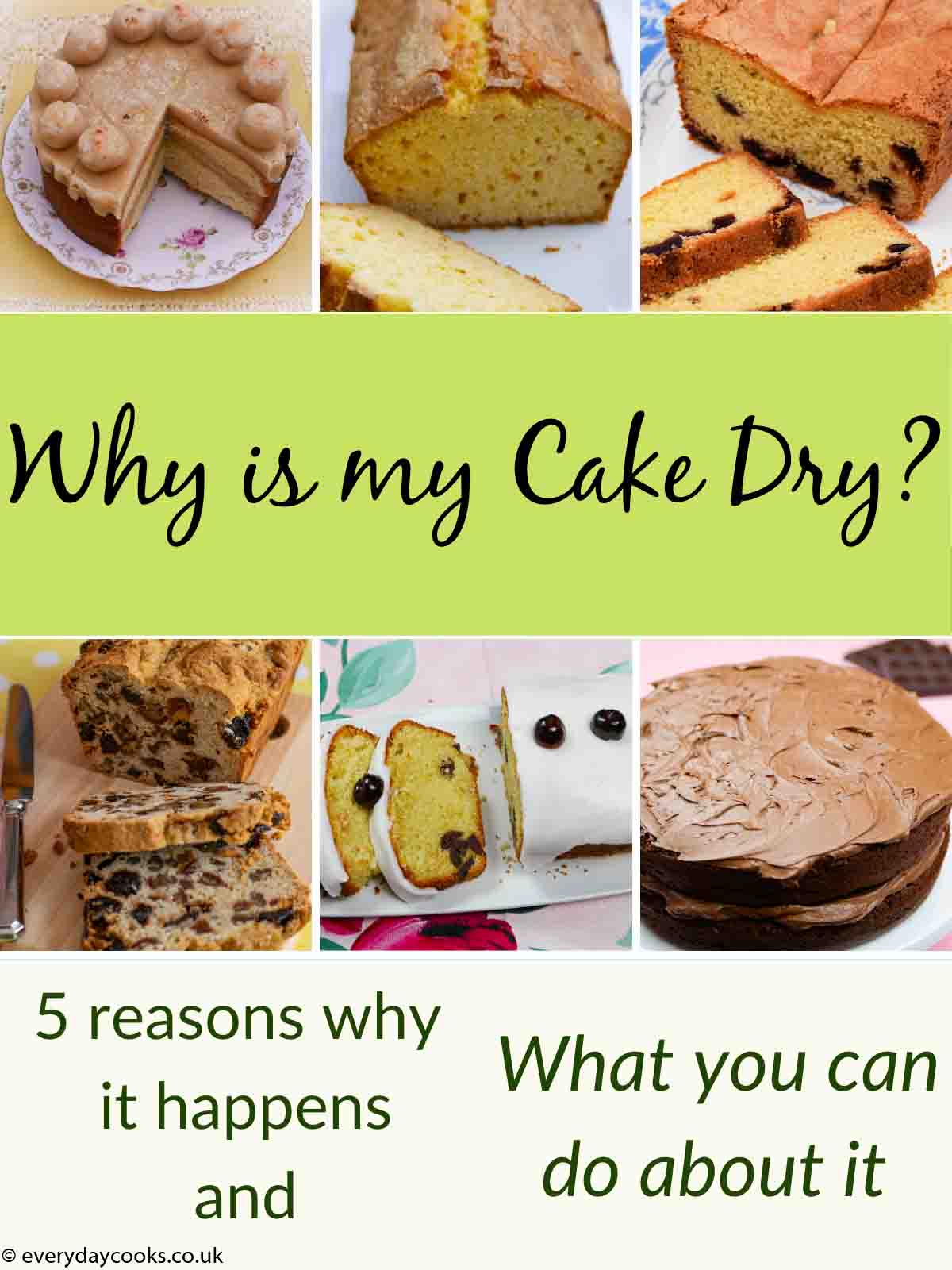
Why is my cake dry? is the most common question that I get asked - and I think it's the single biggest deterrent to home-baking. So if your cake turns out dry, try these remedies.
1. The oven was too hot
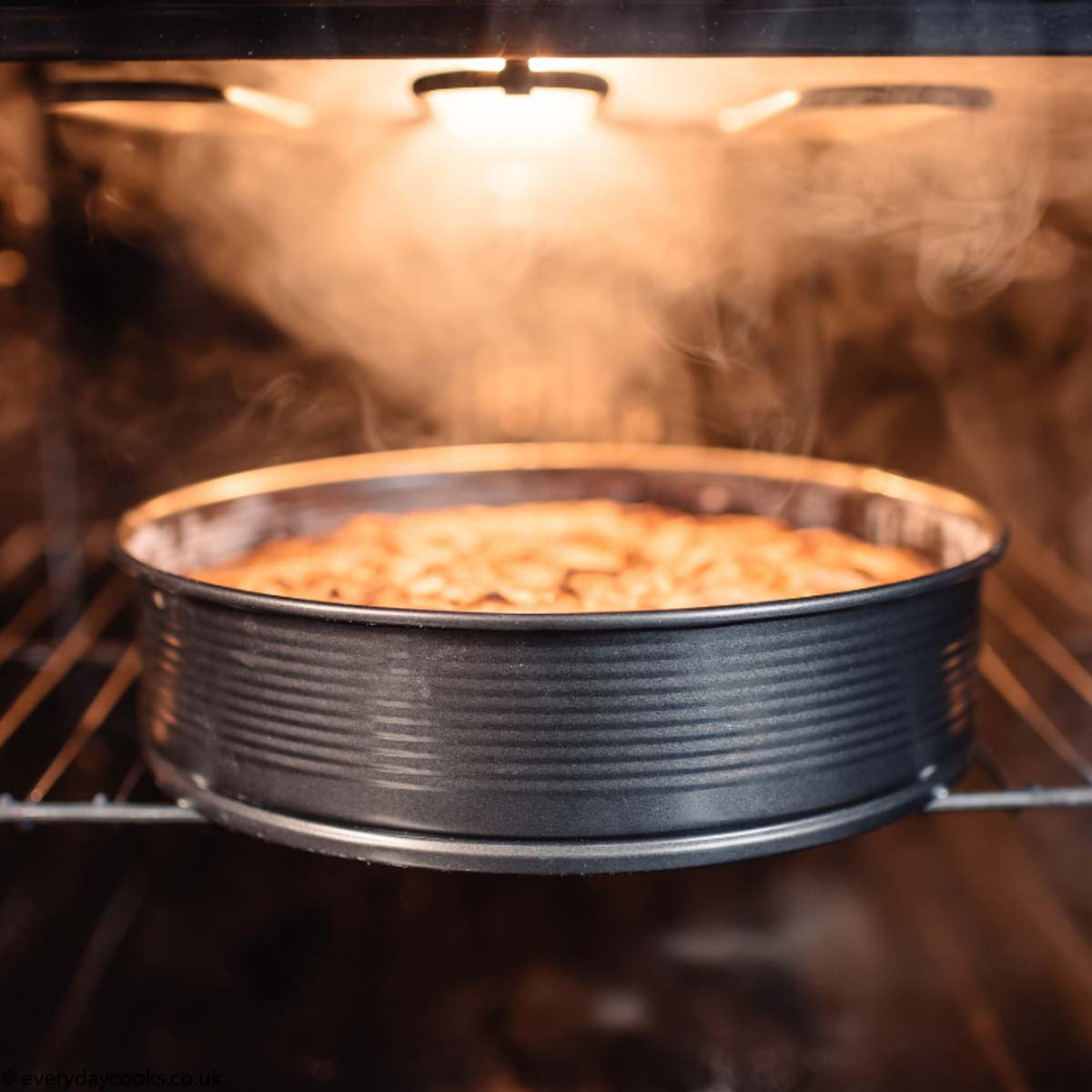
I know! You set the oven to the temperature the recipe said, but just check out these three possibilities:
- Fan oven? - Check that the temperature you used was for your type of oven because a fan oven needs a lower temperature (20°C less) than a conventional oven
- Oven runs hot - Unfortunately, oven thermostats vary and your oven may run hot. If your meals and cakes are often a bit dry or are cooked quicker than you expect, this could be your problem so start by turning your oven down by 10°C
- Check the temperature - To be absolutely sure that your oven is at the right temperature, buy an oven thermometer and check it out.
2. You cooked the cake too long
Most cake recipes give a range of times for cooking the cake. This is because all sorts of things vary, including:
- Oven temperature
- Ingredients temperature. On a warm day and/or if your butter and eggs have been out of the fridge for some time, the cake mixture (batter) will be warmer than on a cooler day, so will cook quicker.
Test the cake after the shortest recommended time. If there is no range of times in the recipe, as a rule of thumb, test the cake 5 minutes early for each 30 minutes of cooking time, i.e. after 25 minutes for a 30-minute recipe
How to check properly that the cake is cooked
- The sides of the cake begin to pull away from the tin. You will see a slight gap forming between the edge of the cake and the tin
- The middle of the cake springs back when touched lightly with your finger. This only works for sponge cakes (but once you've mastered it, it's fool-proof)
- A cake tester comes out clean, with no streaks of batter. You can use a thin skewer or a cocktail stick, or if you are uncertain, buy a reusable cake tester or if you're really serious a Thermapen food thermometer.
3 - Your eggs were too small
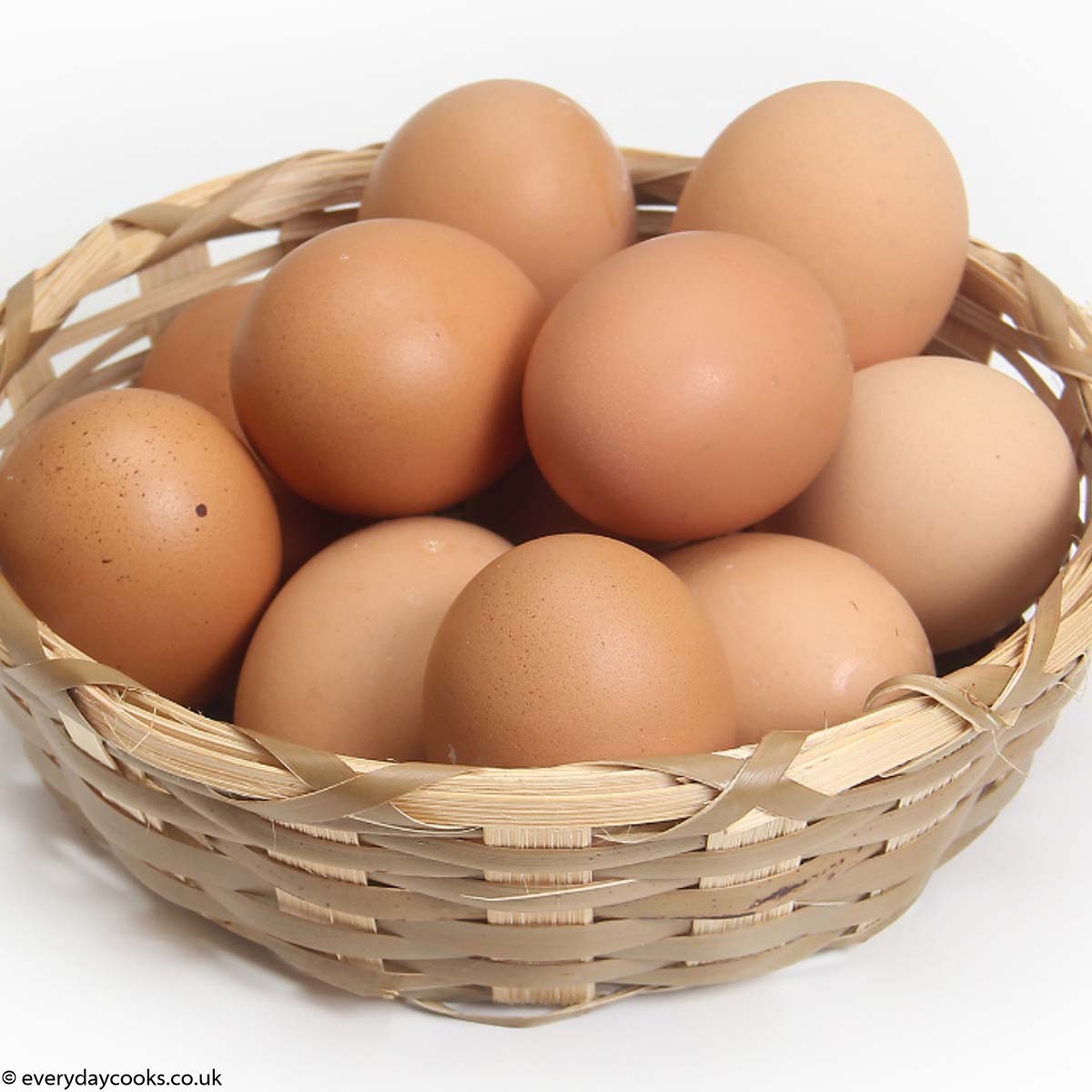
Eggs vary in size within a particular grade, e.g. a UK large egg weighs 63g -73g in the shell. If you used medium eggs when the recipe calls for large eggs, you won't be adding enough liquid.
Check your egg size
- Modern recipes tend to use large eggs as the default, so if in doubt buy large!
- If you buy mixed weight eggs, weigh each one and write the weight on the shell with a Sharpie
- If your eggs are medium and you need large, add an extra half egg (e.g. the yolk) per 3 eggs, or 25ml milk
- If you're making a sponge cake, weigh the eggs in the shells and add the same weight of butter, sugar and flour (see Victoria Sandwich recipe).
4 - You didn't measure the ingredients accurately
Baking is more of a science than an art, and it is important to weigh ingredients. I always do, even if I can estimate accurately most of the time. This is particularly important if a recipe calls for a spoonful of some ingredient.
If you measure by volume, i.e. in cups, be aware that it isn't as accurate, e.g. a cup of sifted flour will weigh less than a cup of flour that's been sitting in a cupboard for a while. My only solution to this is to weigh the ingredients.
How big is a tablespoon?
- Level tablespoon = 15ml. The ingredients are level with the top of the spoon - use the back of a knife to level off
- Rounded tablespoon = 30ml. As much above the spoon as in it. This is usually the default if no other information is given
- Heaped tablespoon = 45ml (approx). As much as you can cram onto the spoon
- Level teaspoon = 5ml.
BUT if you live in Australia (or you're using Grandma's spoons in the UK, or one of her recipes), a tablespoon is 20ml.
5 - You used a different sized tin
If the tin that you used meant that the cake was shallower (i.e. it was a bigger tin) it would cook more quickly, so reduce the cooking time - or use the tin specified in the recipe.
Where did you find the recipe?
Finally, make sure that your recipe is from a reliable source and gives you enough detail, especially if you don't often bake. If you found it online, ask the author what they suggest when things go wrong.
Stockists
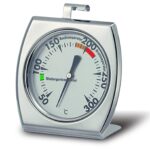 Buy Now →
Buy Now →  Buy Now →
Buy Now → 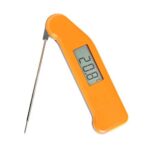 Buy Now →
Buy Now → 

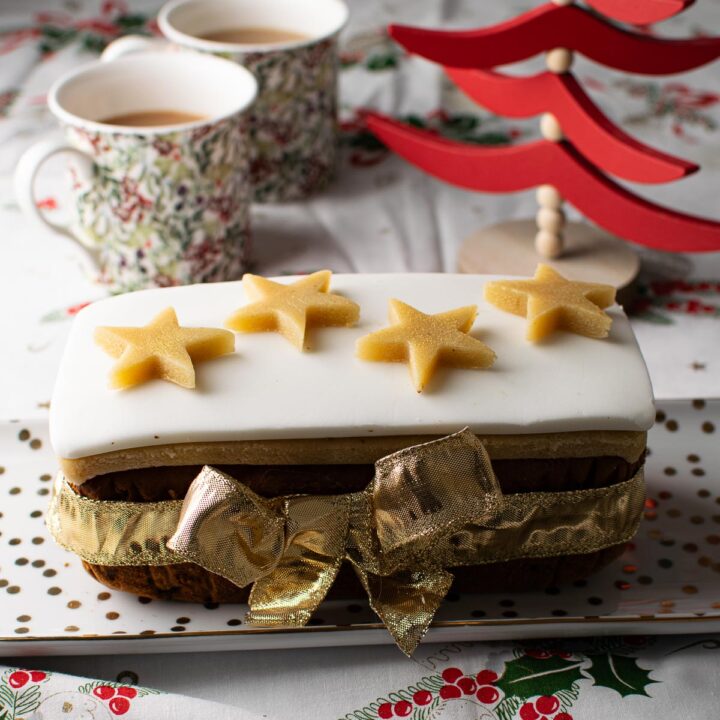
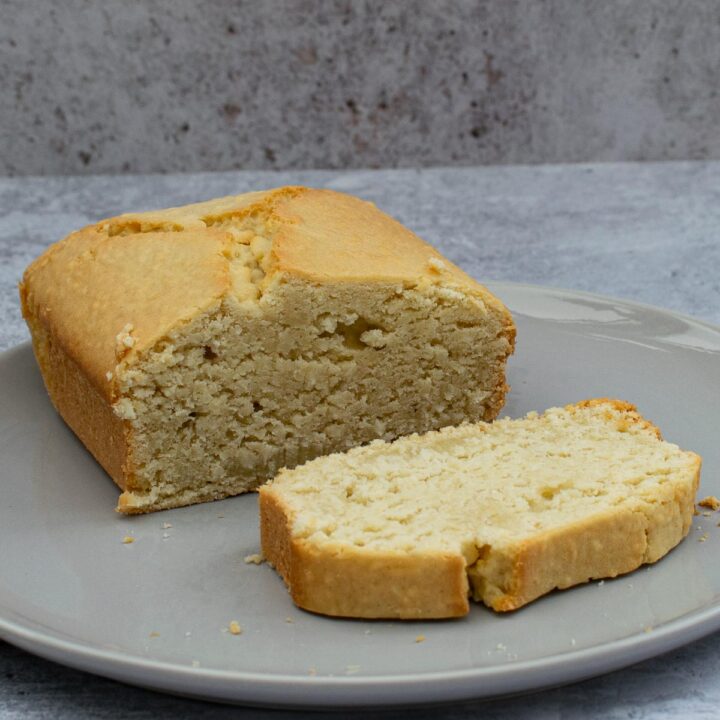
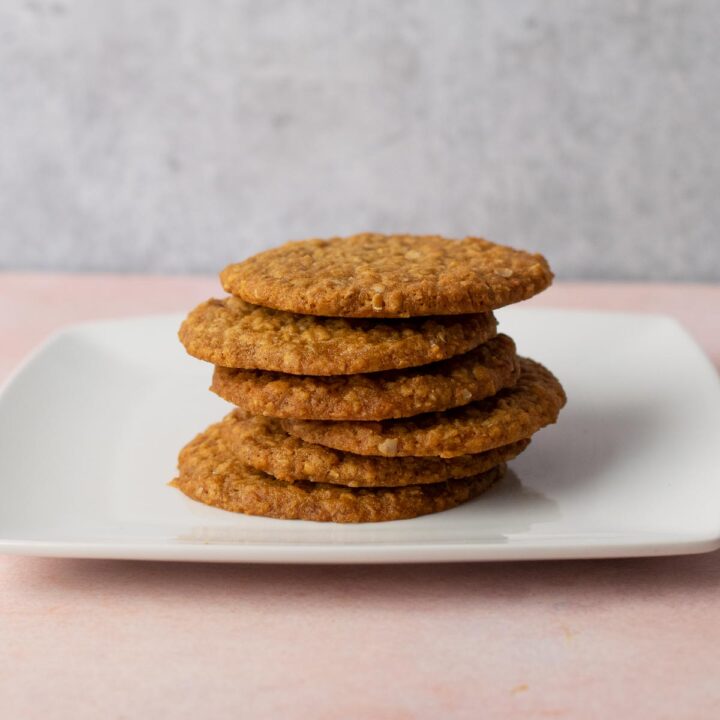
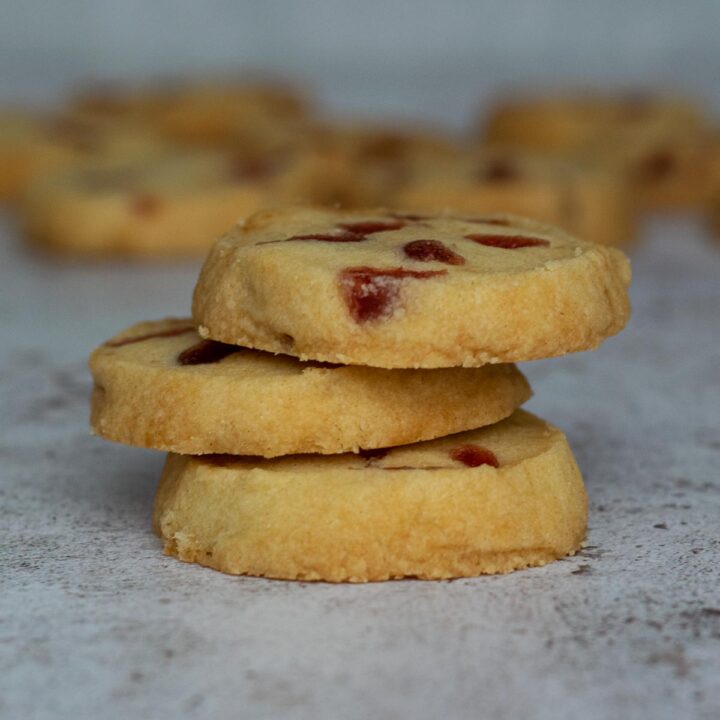


Freddie Fox says
My Nan used to put an enamel plate filled with cold water in the bottom of her oven. I can't remember if that was for bread or cake making. What ever it was, she always produced excellently baked stuff. She didn't measure out either; I'm guessing, because she baked/cooked every day. I'm just learning to bake now. I don't know why I haven't tried it before, I'm not turning out stuff my wife won't dislike, and I'm 73. These tips are brilliant, thank you!
Susie Collings says
Hi Freddie. It's never too late - I love to hear about new bakers of any age 🙂
I'm pleased the tips are helpful. Interestingly, some new ovens have a steam bake option, which is the same as your Nan's water trick. She obviously knew what she was doing 🙂
Anne says
My fruit cake didn’t rise very high made it with oil and 2ducks eggs put everything in an all in one but bested the eggs on their own then put them in the mixture should I have used may electric mixture it said to use an 8 inch tin and cook on 140 c
Susie Collings says
I don't often use oil in cakes so I don't know how that works. I presume the recipe was for an oil cake?
Duck eggs are great in cakes and usually help them to rise more. If they are very much bigger than equivalent hen's eggs they can make a dense mixture.
Otherwise, cakes not rising are usually because:
The cake pan was too big;
The wrong amount of raising agent (probably baking powder) was used - too little and it's flat, too much and it rises too quickly then flops. Or the baking powder was stale;
The ingredients weren't mixed together well enough;
The oven temperature was too high or too low (ovens aren't always accurate.
Hope that helps.
Shirley Chulani says
bake my cakes in noricware bundt pans .. i bake in an electric toater griller oven ..my cakes cook up from te sides faster and te center s take time to cook ...one of the cakes puled away from the sides .but when i inserted the cake tester ir came up with raw batter ... due to this the cake had to be in the oven for longer time .. my cakes r not turning out soft the crust is tough.what shud i do . i have options to bake with either top or bottom rodsof the oven .
Susie Collings says
Hi Shirley, It sounds as if the temperature in the oven is too high, so the sides are cooking too quickly leaving the centre uncooked. Try a lower heat. Top and bottom heating is fine, but no grill of course 🙂
Pat says
I never had any luck with one of these ovens for baking cakes sides and top burnt but uncooked in the centre. I bought a tefal cake factory now no problem
Marie says
Do the above also apply to yeast cakes that turn out dry, eg stollen?
Susie Collings says
Hi Marie, Yes it does.
Debby Fields says
Your article on why cakes might be dry was super helpful! I bake cakes often and tried a new recipe that everyone said would be moist. Mine was dry, which has never happened to me. After reading your article, I realized that the eggs were on the small size. Mystery solved! Thanks to you, I can avoid this problem in the future!
Susie Collings says
Hi Debby, Glad you found it helpful 🙂
Leah says
Hi Susie,
My cakes always turn out thin. I don't know what do.
Susie Collings says
Hi Leah, A few reasons for this: Cake tin is too big; Not enough air in the mixture. I always use an all-in-one method to mix cakes abut you need extra baking powder to help it rise; Similarly, using plain flour and not self-raising flour; Also if you open the oven too early to look, the cake will collapse.
Hope that helps. S
Jayne Dorien says
Hi Sussie
Made your fruit cake came out lovely thank you
Also I used to be a waitress & the best advice I got from a Chef was when making a cake ( any cake) put a tbs of golden syrup in your mixture & a little less sugar never had a dry cake since
Susie Collings says
Hi Jayne, Great tip. I might steal that one - thanks 🙂 (Also, pleased you like the cake.)
Chris phillips says
I make a lovely walnut and sultans cake. First slices are lovely and I store it in a tin but it dries out. What am I doing wrong?
Susie Collings says
Hi Chris, I keep my cakes in plastic boxes in the fridge. If I keep a cake in a tin at this time of year it's in the conservatory or the garage, i.e. a cold space. I think it's because our houses are warmer these days that cakes don't last in a tin. But I do keep biscuits/cookies in a tin in the kitchen and they're fine. Cheers - Susie
Betty Hartman says
I'm USA. I don't do metric or celsius. Every day fruit cake at what temp?
Susie Collings says
Hi Betty, The temperature to use is 325°F